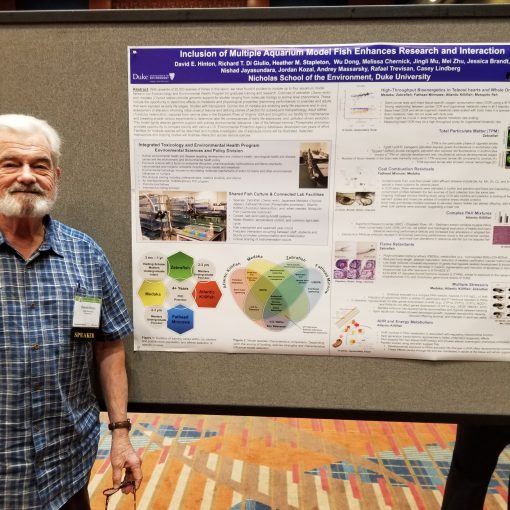By Sasha Burwell

My name is Sasha Burwell, and I am an undergraduate student at McGill University in Canada. After living in the South for over half of my life, the adjustment to the wintry north was occasionally challenging, but I quickly acclimated to the boisterous, urban Montreal environment, and have grown to love it almost as much as I love North Carolina. The rolling hills and suburbia of Raleigh, with the sweltering beach only two hours away, still have their hold on me, but after only one year I consider Montreal to be my home away from home. I am the sort of person who is always up for a challenge, and am always excited to experience or learn something new, which is why I was honored to accept a position as an intern in the Di Giulio lab this summer.
I am currently pursuing a Bachelor of Science degree in biology, and I will likely be following a stream in neuroscience. I am fascinated by the brain, the organ that gives us the ability to walk and talk and think and be human, but that we know so relatively little about. Though I have only spent one year at McGill, I know that science is what I love, and research is my primary interest. This summer, I am an intern in the Duke Superfund Research Center; more specifically, I am working within Project 3, in which the developmental effects of PAHs on killifish are examined. Being an intern is a great opportunity because it allows me experience research first hand, and to learn about what it is like to actually be in a lab environment. My research will focus on the combined effects of two stressors, temperature and level of PAH exposure, on Fundulus heteroclitus embryos. PAH exposure causes cardiac deformities in killifish embryos, so I will assess these effects by searching for heart problems in the embryos. My mentors, Nishad and Jordan, and I are also hoping to find a way to use the Seahorse Bioscience XFe analyzer to measure the metabolism of whole fish brains, which ties into my interest in neuroscience. Measuring whole brain metabolism has the potential to show if adaptations to PAHs or other chemicals lead to performance costs in the ability of the brain to metabolize energy and function.
I am looking forward to a summer enjoying the North Carolina sun and spending quality time at home with my family. Most of my free hours will be spent between riding horses at the barn and reading on my sunroom couch, my two favorite hobbies. This combination would make for an amazing summer no matter what, but I am most excited about working in the lab and learning how to search for knowledge that has the potential to improve people’s lives and this planet we all call home.




